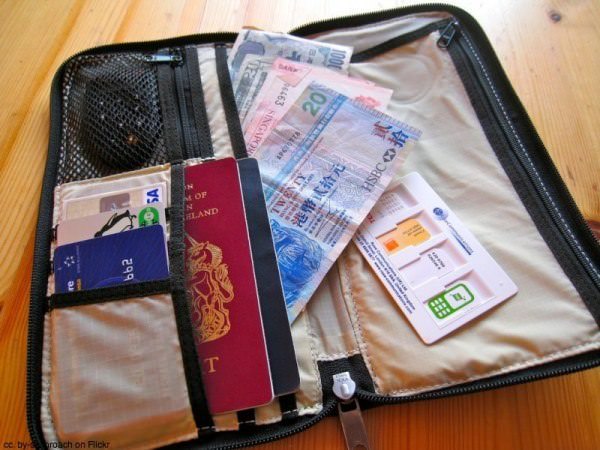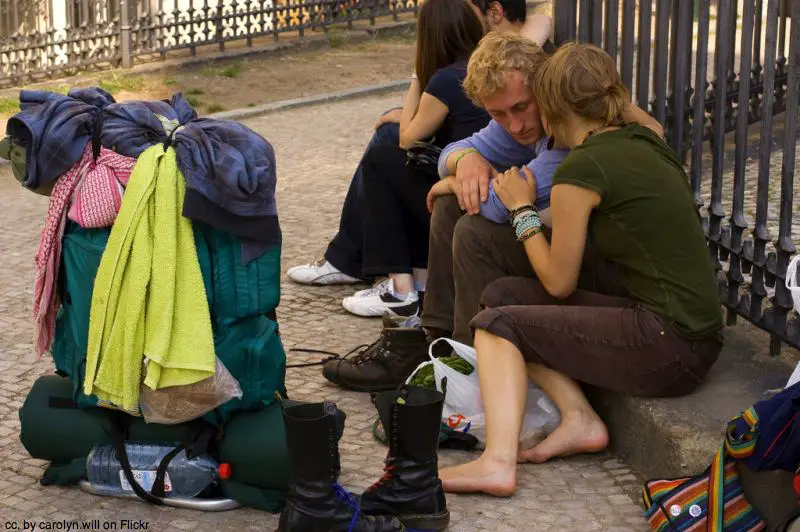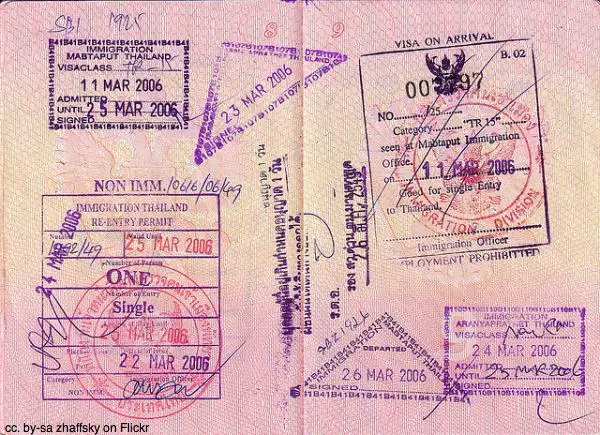Why long-term travel isn’t for everyone
Long-term travel is amazing. You can travel slowly, appreciating things you just don’t notice on a two-week holiday, immersing yourself in a chosen country or visiting an endless number of places. It’s a lot cheaper per-day to travel slowly and really get the most out of that long-haul flight, and you have more flexibility over your plans than you usually have on a short trip.
However, long-term travel isn’t for everyone. Although it fits the lifestyle and personality of many quite vociferous people (me included), it’s not the right choice for some. Why?
1. It’s expensive
Yes, I know I just said it was cheaper than short-term travel, and that’s true if you’re looking at a daily spend. But saving up enough for a year of travel if you’re not planning on working along the way can be extremely difficult. Craig and I worked for four years to pay off debts and put away enough for us to feel comfortable about leaving NZ indefinitely, and we were planning to find work in Europe.

Although some people just put their flights on the credit card and hope for the best, this is irresponsible and will only cause problems later — you do still have to pay it back! There are ways to make money fast and tricks to saving more, but even using these require an investment of time and, yes, more money.
2. You still have to work
If you plan to travel for more than a year, and you don’t have a trust fund, you’ll have to work one way or another. We initially worked as English teachers as well as finding other jobs in shops, offices and a hotel. Turning Indie Travel Media into a functional business has been a long, slow process — don’t expect to be able to live off your travel blog, and certainly not without putting a lot of time into it.

You might have the kind of job that can be done independent of location, in which case you’ve got it easier than some. I met a girl on the plane to Malaysia who had been working from home doing copywriting and realised she could do that anywhere, so she was heading to India indefinitely.
You could retrain to gain portable skills, but you might be quite happy in your fixed-location job — do you really want to leave it?
If you have skills that can travel, even if the job can’t, you can find work in your chosen location, but look carefully into visa regulations, pay and contracts. I’m working as a teacher here in A Coruna in addition to my Indie Travel Podcast work, and per hour I’m earning a quarter of what I got in Australia. I’m certainly not doing it for the money!
3. There is a lot of bureaucracy
Bureaucracy can be extremely draining. If you want to work in your chosen location, you’ll almost always need some sort of visa, and the process of obtaining one is often long and frustrating.
If you don’t want to work, you’ll still need documentation to enter some countries. You can certainly plan your trip around countries where you don’t need a visa, but you do still need to consider how long you can stay in each place before the authorities get annoyed. If you want to stay longer than the allowed time, expect paperwork.

4. It’s lonely
At home, you have a network of friends and family to turn to if you’re sad or bored. On the road, they’re probably still available via Skype and Facebook, but it isn’t the same thing to have a videocall as to have a hug and a coffee. You’ll be meeting new people and having fantastic experiences, but sometimes you’ll feel like you need an old friend and you’re all alone.
Travelling in a couple isn’t even a defence against loneliness — although I’m always with Craig I sometimes feel that I need more people around me, especially if I’m somewhere where the culture is very different to my own. As an extrovert, I’ve learned that this is quite normal, as extroverts get energy from being around people and introverts are the opposite. Here in A Coruna, my teaching job is keeping me in contact with people, and I’m spending the weekends with my language-exchange friend Oliva.

5. It’s tiring
Long-term travel can be tiring, quite apart from the work and the bureaucracy. Little things become more difficult because you’re not used to the systems and you’re constantly having to learn new ways of doing things — I thought I knew how a supermarket worked until I did everything wrong in one in Austria.
In your normal life, you don’t have to think about finding accommodation and food, while travelling these two things (plus transport) will take up a lot of your time and mental processing. Plus, being on the move all the time can be hard on your body.
Of course, all of these issues can be overcome, and for most of those who chose long-term travel, it’s all worth it. However, if you’re not completely convinced that travelling full-time is what you’re after, small issues might become big ones and you’ll end up bitter. Make sure to think carefully about yourself, and whether long-term travel is the right choice for you, before jumping into a long trip.








One thing that is also keeping me from pursuing long term travel is I need that feeling of stability. I traveled for several months before and I felt disoriented and anxious. i need that sense of belongingness
I know what you mean, having a home really makes a difference. We’re really enjoying slow long-term travel at the moment, basing ourselves in one place so that we can build that sense of belongingness, and exploring from there.
I agree with the tiring. It can be very tiring indeed. We’ve been on the road for a little over 8 months now. When we first started out there was always something we wanted to see just down the road so we were moving every few days. Then it was every week. Then every 1 to 3 weeks. We’ve just decided that in future we’re staying in each new location for a month.
The actual being somewhere isn’t particularly tiring. I think I’ve just gotten used to not really knowing what is going on most of the time. The actual getting there however is really tough. Packing your life back into your pack, sitting on a crowded bus (or whatever), not being entirely sure where you’re meant to get off, arriving in yet another town that you don’t know your way around, dealing with the touts and rip off artists clustered around the tourist drop off point etc, all for the bazillionth time. I’m feeling tired just thinking about it.
I completely agree, transit is tiring. It’s fun and exciting for the first little while, but loses its charm if it’s never-ending. Sometimes, though, it’s awesome — we just went on holiday after being in one place for ten weeks, and I really enjoyed the transit times (which surprised me). Travelling with locals probably helped reduce the stress though!
Some really good points there Linda. You don’t always know how you’re going to react to some of those issues until you’re actually dealing with them. I actually quite like being on the move, but also enjoy getting to know a place in greater depth. Bureaucracy, especially in a foreign language, I find extremely frustrating. I think Andrew’s got a good strategy
This blog post honestly worries me a bit. i plan to travel for over 1 year next beginning june 2013. 5 months in italy, 1 week london, a month in USA (between NY and MN), 2 weeks vancouver, then 7 months in south america (final 5 months teaching english). i guess the teaching english at the end does give me that work aspect but i’m hoping having family/friends in each of my desintations will overcomes those concerns mentioned.
any thoughts?
What’s worrying you Fiona? Having enough money? Being homesick? Since you’re not leaving for nearly a year, you’d have a lot of time to save up and organise. If you’re planning on staying with family or friends, that’s a different experience than turning up in a place you’re completely unfamiliar with and finding a random hostel. Depending on where you live now, there may be a local group like Meet, Plan, Go you can get in touch with and meet other folks who are planning similar travel. If not, there are so many good resources out there, like this site, Boots’n’All etc where people will be happy to help you.
I think what I found refreshing about Linda’s article was that so many people talk about how awesome long-term travel is (and it often is) but not as many talk about how the realities aren’t always that exciting. I think as long as you keep an open mind and realise there will be ups, and downs, you’ll be fine.
well some things that were mentioned like loneliness i wouldn’t of thought would be a major issue. nostalgia maybe, ie. a longing for home/comfort/routine.
the expense factor i’m not too worried about. the money lasts until it lasts.
i wouldn’t think you HAVE to work if you’ve saved up more than enough money (which then avoids visa/bureaucracy problems). but then again, most people probably never save enough or bother to really research the average per diems incurred.
the tiring thing i’m surprised at too, especially if you’re pacing your trip, which i hope i am haha. 5 months in italy is just not enough anyway.
i really appreciate the suggestion of the Meet, Plan, Go so i will definitely look into that.
i guess though the context linda wrote her article is as you said, going to various countries for short periods of time, alone and living out a backpack. i am fortunate enough that i won’t be doing much of this at all (fingers crossed anyway).
nevertheless, it’s definitely food for thought!
Sorry for scaring you, Fiona! Long-term travel is awesome and you’ll have a great time — I just wanted to provide a balance to all the posts that just say “travel is awesome and you’ll have a great time”. Sometimes it’ll be a bit difficult. You seem pretty well-prepared, though, and your contacts in your destinations will certainly help.
Thanks for your thoughts, Rachel.
I first set off on my gap year backpacking Australia for 3 months. I was having the time of my life moving around and meeting new people, seeing the sights…but quickly enough i found I had no money left and needed to work. For a long time. I’ve been in the same place now for nearly 8 months, just to get back on my feet. Although working as an au pair has kept me surrounded by people almost all of the time, it is true that without the friends and family who know you best it can get quite hard after the novelty of being away wears off. But I truly believe it’s all part of the experience and the challenge. You soon find ways to cope with the loneliness and fatigue but its totally worth it for the inner strength you build as a person. I think it’s a great idea to find a job you can do abroad such as teaching English. And my advice would be to try and do something you think you will enjoy for the most part, that will keep you busy and where you can meet a lot of people for example a restaurant or a hostel. In 2 weeks I will be back on the road again and I can’t wait for the chaos of the constant travelling to ensue! After that it’s home sweet home, but only to recharge my batteries and decide where to go next! Good luck to all of you – it will be hard, perhaps even the toughest challenge of your life, and it will reveal to you your true self – so be prepared, but also know it will be the best thing you ever did 🙂
Thanks for your response Sophie — and you’re right, the challenge is part of the experience. I hope you have a great crazy trip — where are you going?
Hey,
I’ve been travelling with my partner for 18 months now and you’re right about all of the above.
One of the interesting things though is that if you tell any of the above to friends back home, the 9-5 friends who are bored with their lot. Then you’ll get no sympathy at all. We get ‘it’s all right for some’ comments all the time.
Still, can you imagine how dull it would feel to go back to a 9-5 life now. Living for the the weekends. It would be a challenge just knowing what day it is, I have no clue at the minute.
For all the downs there are ups too 🙂
Cheers,
@danteharker
You’re right Dante, no-one ever has any sympathy for long-term travellers… and I don’t mind! I’m living the dream, it’s just that the dream has its problems too. I certainly wouldn’t change it for the 9-5, though I do do teaching stints now and again — it keeps me sane.